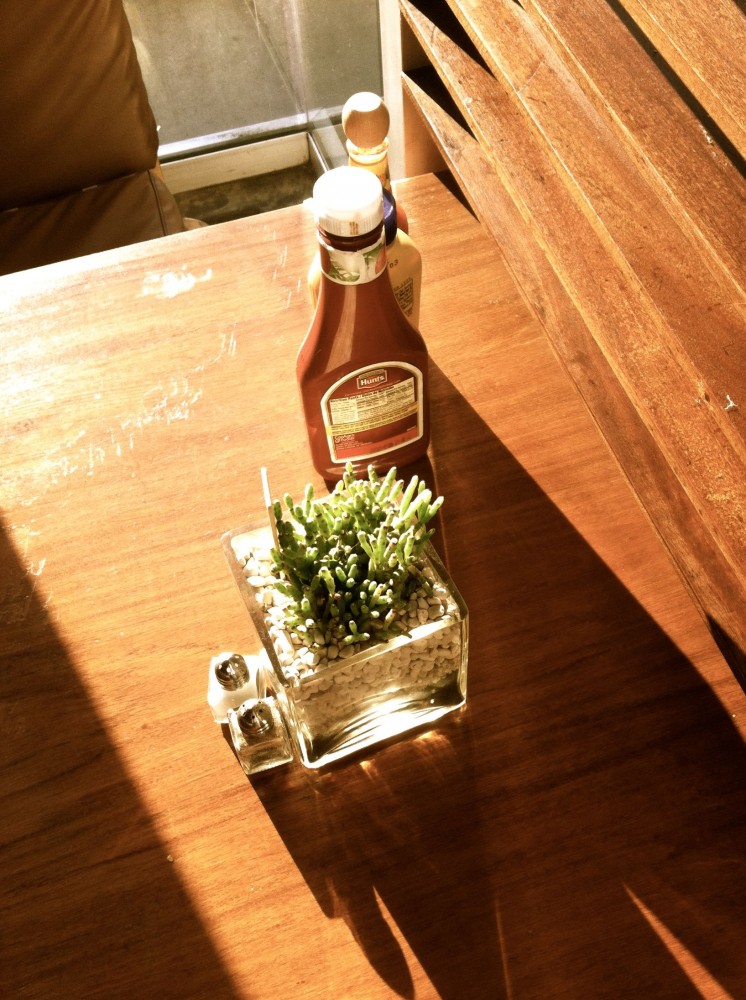Back in high school I became fascinated with folklore. I marveled at the hand-me-down stories and morality tales that were whispered between teenagers. There were many versions of the same tale. There was the one about the couple at make-out point who find a hook on the side of their car. The tarantula stowed away in a crate of bananas. The sad end of a child star, as a result of a deadly mixture of pop rocks and Coca Cola. Though the details of each story may have been interchangeable—they were murdered! They escaped! They ate the spider! The spider laid thousands of eggs!—the story left the audience feeling in a similar way. Uncomfortable.
Folklore may be a good way to deliver a moral idea, but it is an incredibly ineffective way to share an organization’s plan for service.
Plenty of restaurants start with business plans and a vision for success, but don’t take the time to write any of it down. Owners commission blueprints, lease spaces, write the menu, decorate, hire the staff, and open the restaurant to the public. Money gets tight and they skimp on building training materials.
The opening team bands together like a tight-knit family and creates a living and breathing restaurant. Time goes by. Staff members leave and new team members come onboard. Change begins to set in as the remaining staff retells the story of what they’ve learned to the new employees. Fine point details are skipped. Corners are cut.
Instead of telling the story of the restaurant’s really cool filtered water program, for example, the only message that’s handed down is a simplified version. The training server tells the new hire: “every table gets bottled water or water from that tap.” Gone is the story about why the triple-filtered, reverse osmosis process is so important. Erased from the story is the ethos of the restaurant. What remains is an action, not the reason behind the action.
When there are no service manuals, no checklists for side-work or cleaning assignments, expectations morph. The finer points of service–the greets, the thank you’s, the crumbing of a table, the opening of doors–get lost as individuals begin to offer up their own interpretation of what hospitality means for them.
Service programs based on folklore suffer from lack of clarity, omission, and skipped steps.
As time goes by and the restaurant’s ethos is erased, so too are the expectations.
“Never show up late” turns into “he doesn’t mind if you are five minutes after your call time”.
“Never give away food” becomes “she won’t get upset if you give something under five dollars away to friends.“
“Every table must be greeted within two minutes of being seated,” becomes “get there when you can.”
When business owners skip the step of writing down the specifics of their service program, they hand over control of the culture of their business to their staff. The culture changes because it has to. A restaurant without clearly written goals and expectations is a restaurant without a compass.
Restaurant owners who want to create a consistent vibe and offer a strong hospitality program should consider investing in service manuals that detail steps of service, describe hospitality philosophies in detail, and illustrate goals and expectations of each role within the business.
Because if you expect your staff to share the same story of hospitality every day, you have to write it down*.
*If you don’t know how to write a service manual yourself, you can ask someone like me to help! Email me for a quote: Brooke [at] Foodwoolf.com.


I just stumbled here and have to say I will never be in this industry, but reading this made me think of a restaurant I went to recently that is actually a training institute. The service was so outstanding. It was really special. My fiance and I wanted to leave a grand tip, and we did…except it wasn’t a tip at all–the money goes directly to the school. What a cool concept! I will definitely visit there and other establishments like it again, and I hope the people trained there will carry what they learned there at their own restaurants in the future.